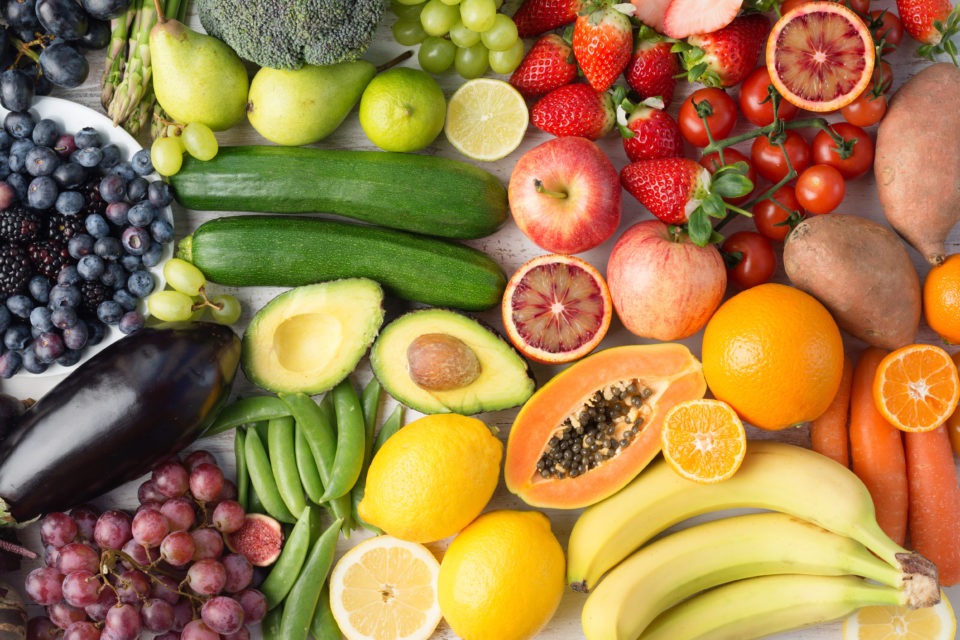
Many in the nephrology community, including the National Kidney Foundation, have promoted the benefits of plant-based diets for patients with chronic kidney disease (CKD). However, the current Kidney Disease Outcomes Quality Initiative guideline recommendations for patients with CKD do not outright suggest whole food, plant-based (WFPB) diets. Instead, they continue to recommend a diet that is low in protein (0.55-0.60 g/kg/day for nondiabetics and 0.60-0.80 g/kg/day for those with diabetes) and sodium (2.3 g/day) and high in fruits and vegetables (considering potassium and phosphorous content).
Natasha S. Freeman, MD, and Jeffrey M. Turner, MD, undertook a review of the literature with the goals of summarizing the risks and benefits of WFPB diets for CKD, offering advice on how to guide patients regarding healthy eating, and determining areas that need further investigation. Their review was published in the Journal of Renal Nutrition.
The review focused on WFPB diets, including pescatarian, lacto-ovo-vegetarian, lacto-vegetarian, ovo-vegetarian, and vegan diets under the “plant-based” umbrella. By the authors’ definition, WFPB diets limit animal products; focus on fresh, minimally processed, nutrient-dense plant foods; and exclude heavily processed, refined, and sugary foods.
Research has determined that there is an association between WFPB diets and improvements in mortality, cardiovascular health, and disease progression in patients with CKD. This is because WFPB diets:
Reduce dietary acid load. Fruits and vegetables can raise serum bicarbonate, which can help mitigate negative effects of metabolic acidosis that can lead to CKD progression, mineral bone disease, and sarcopenia. These foods produce alkali, and many contain citrate and malate, which metabolize to bicarbonate. Research in nondiabetic CKD patients found that supplementation of fruits and vegetables was as effective as oral bicarbonate tablets in raising serum bicarbonate in all stages of CKD for up to 5 years. Eating fruits and vegetables also resulted in reduced body weight, blood pressure, and net urinary acid excretion. Furthermore, plant-based proteins may have alkali-producing and anti-inflammatory attributes that protect kidney function.
Decrease bioavailability of dietary phosphorus. Patients with CKD generally need to limit phosphorus intake because hyperphosphatemia can cause hyperparathyroidism, mineral bone disease, vascular calcification, coronary events, CKD progression, and mortality in patients with CKD. Phosphorus is present in most foods, so limiting it can be challenging. However, phosphorus from plant-based foods tends to be less bioavailable than that from animal products. Phytates, a form of dietary phosphorus found in plants, cannot be processed by humans, resulting in an intestinal phosphorus absorption of less than 40%, compared with at least 40% to 60% absorption for phosphorus from animal products. A crossover study of nine patients with stage 3-4 CKD found a significant reduction in serum phosphorus and fibroblast growth factor 23 levels after consuming 7 days of a vegetarian diet, while a significant increase was seen after 7 days of a meat diet.
Increase fiber consumption. A diet rich in fruits, vegetables, and whole grains tends to be naturally high in fiber, which has many known health benefits. A high-fiber diet (median, 27 g/day) has been shown to reduce serum urea and creatinine in patients with CKD, yet restricting potassium and phosphorus, which is typically recommended for patients with CKD, can cause lower fiber intake. As of 2012, patients with CKD only consumed 15.4 g/day of fiber; the recommended intake is 25-35 g/day.
The review also found potential downsides associated with a WFPB diet for those with CKD. These include:
Risk of hyperkalemia. Hyperkalemia in patients with CKD carries a risk for mortality; thus, diets low in fruits and vegetables are typically recommended for these patients. However, there is a body of literature suggesting that such dietary restrictions may unintentionally limit intake of healthy foods, with a potential impact on overall health. One meta-analysis found that, in normokalemic patients with CKD, potassium restriction was associated with a 40% reduction in mortality, but their serum potassium levels only decreased by 0.22 mEq/L. In another study, random provision of fruits and vegetables did not increase incidence of hyperkalemia (baseline K, <4.6 mEq/L; mean estimated glomerular filtration rate, 33 mL/min/1.73 m2); it also resulted in better blood pressure and body weight and increased urinary potassium excretion.
Insufficient nutrition. This is a leading risk factor for morbidity and mortality in those with CKD. Inadequate protein consumption is a key concern with plant-based diets, although diets tailored to patients with CKD tend to restrict protein. A 2021 cohort study of patients with stage 3-5 CKD found that a low-protein diet (<0.8 g/kg/day) was difficult to achieve (34% adherence) and associated with insufficient calorie intake (23 kcal/kg/day vs the recommended 30-35 kcal/kg/day). However, patients with and without CKD who eat mostly plant-based diets have been shown to consume 0.7-0.9 g/kg/day of protein and do not present any evidence of nutritional deficiency. Sufficient nutrition from WFPB diets depends on making healthy food choices; a registered dietitian could help steer patients toward healthier dietary decisions.
Difficulty of adopting a WFPB diet. When surveyed, most people demonstrated a low readiness to adopt a plant-based diet. Reasons for this include insufficient knowledge of the health benefits, ways to create appealing plant-based meals, and nonmeat sources of protein. Cultural and socioeconomic factors can also create barriers; some people find it difficult to give up cultural and familial traditions relating to food, and it can be more expensive to purchase fresh foods. The latter point is crucial when considering that an estimated 4.5% of adults with CKD experience food insecurity.
Current data are limited by a lack of standardization of dietary interventions across studies, reliance on observational data, small sample sizes, and modest effect size. It remains unclear whether the benefits of WFPB diets come from the avoidance of animal products versus choosing whole, fresh foods over processed ones. More research is needed to determine if the same effects might occur with less restrictive diets that do not eliminate animal products completely, instead focusing on fruits, vegetables, whole grains, nuts, and legumes, with lean meats, fish, and eggs in moderation. Large randomized, controlled trials of representative samples of the CKD population, involving practical diets such as the WFPB diet, Mediterranean diet, DASH diet, and standard CKD diet, could further elucidate this question.
In sum, the researchers said, “A whole food, plant-based diet, which emphasizes fresh, minimally processed or refined plant-based foods and limits animal products, has shown benefits for patients with CKD. These include reduced dietary acid load, lower bioavailability of potassium and phosphorus, increased dietary fiber intake, nutritional adequacy, and cardiovascular and mortality benefits. Potential drawbacks include the need for specific knowledge, skills, and cost involved in preparing varied, healthy, and appetizing plant-based meals, leading to lower acceptability and accessibility to certain populations. Liberalization of the standard CKD diet to include healthy, minimally processed foods such as fruits, vegetables, nuts, legumes, and whole grains is likely beneficial, though more research is needed to determine whether a plant-based-only diet is the optimal way to achieve healthier eating in patients with CKD.”
Source: Journal of Renal Nutrition







 © 2025 Mashup Media, LLC, a Formedics Property. All Rights Reserved.
© 2025 Mashup Media, LLC, a Formedics Property. All Rights Reserved.